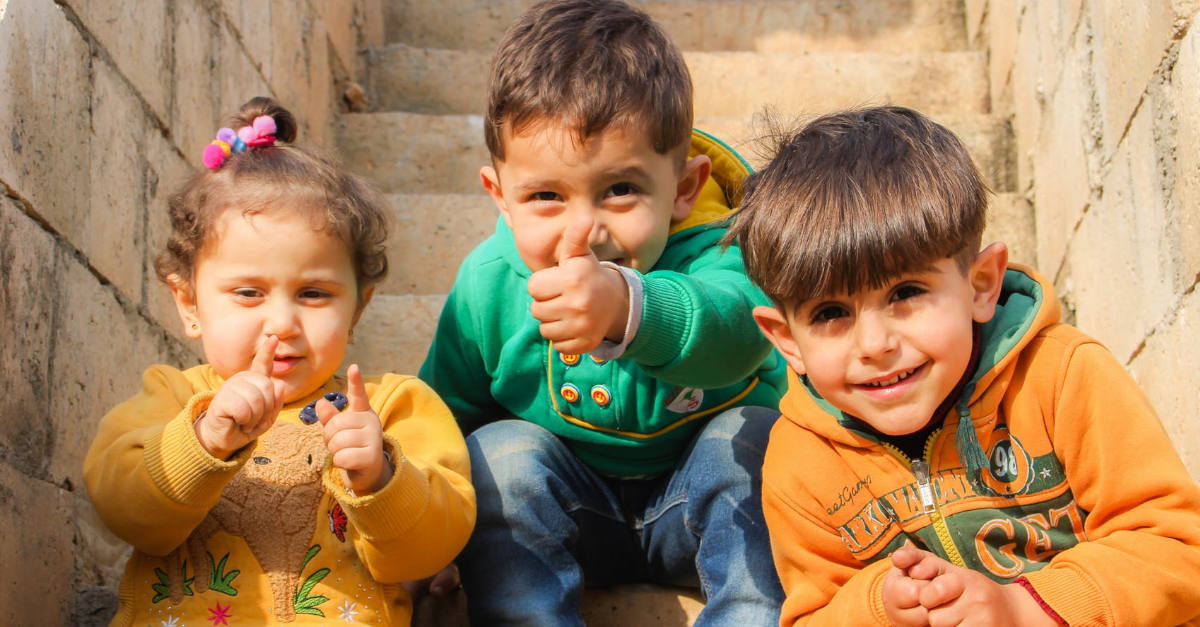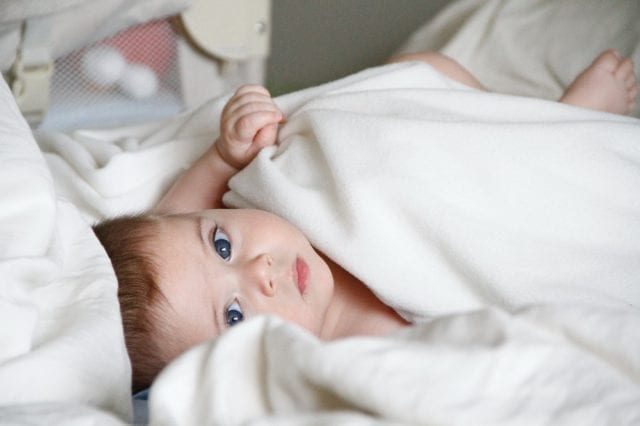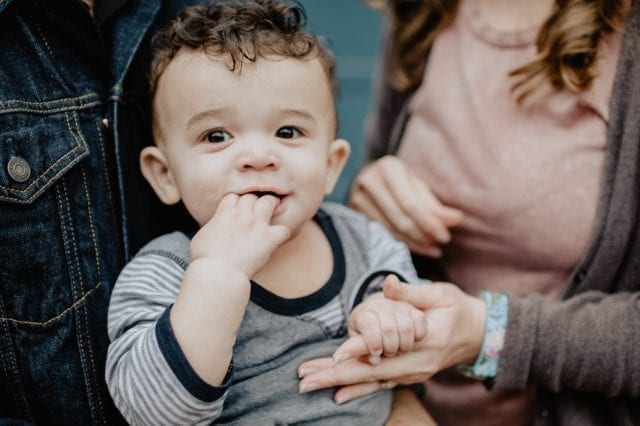
Early Childhood Development: Tracking the 3 Important Stages
Early childhood development is the physical, psychological, and emotional growth of the child. This period of development can last from the time an individual is born until they reach adolescence, even the beginning of adulthood.
During the developmental process, the child learns the basic skills of life, develops and navigates complex emotions, and learns to relate to peers through social interactions. The whole process can be thought of as the child progresses from stages of dependence to an independent life. Let’s take a closer look at each stage…
EARLY CHILDHOOD DEVELOPMENT: WHAT YOU NEED TO KNOW
Early childhood development is greatly influenced by genetic factors, prenatal experiences, and the environment of early childhood. By environment, we mean the type of surroundings in which the child is growing, what events they are experiencing, the behavior of the parents and caregivers, etc.
Normally, early childhood development reflects the full scope of skills that a child learns during his developmental stages of life. However, the five key areas of early childhood development include…

- Cognition: The ability of an individual to think, learn, and solve problems
- Social and emotional interactions: The development of social links and emotional attachments
- Speech and language skills: The ability of a child to learn a language, read, and communicate with others.
- Physical/Motor skills: The ability to control the body through both fine and gross motor skills.
- Sensory awareness: The ability to perceive and process sensory information for future use
Understanding the stages of early childhood development is important because it can help parents understand if their child is on the right track or not. However, it’s also important to remember one key factor…
The stages are not hard-and-fast rules.
Don’t think that each child must meet at the same age, but rather serve as checkpoints – letting parents know about how well their child is growing physically and psychologically. Children with poor early childhood development are often left behind in their academic careers which hampers their personal and social life as well.
If your child isn’t developing as per the normal standards, there are plenty of ways to help promote healthy development, and it may be beneficial to take them to a trusted pediatrician who can help. But how would you know if your child is on the right track? Well, we are here to help you with it. So, keep reading.
HOW TO TELL IF YOUR CHILD IS ON TRACK – MILESTONES

There is no tracking device or alarm system that can notify you of your child’s early developmental progress. It is you who have to keep an eye on certain milestones that will help you know about the growth and development of your child. Just the way you keep tracking his height and weight, it is important to keep tracking cognitive and psychological development as well. For example, in the first few months after your child’s birth, you will clearly notice the signs of motor and language skills.
Your child will start moving their fingers, looking here and there. They will try to answer you with a smile or facial expressions. He or she might not be able to produce proper words but will try to make sounds, etc. If this isn’t happening to your child, it may be a sign they are facing a developmental delay and that you may need to consider consulting an expert.
For your ease, we have summed up some major milestones that a child might achieve by a certain age based on typical developmental progress. Consult the list and see if your child is doing what the majority of his age group’s children do.
Developmental Milestone: Birth to 1 Year
It is the most crucial year of growth as every month will offer something new!
In the first 2 months, your child may begin smiling when hearing your voice and follow you with their eyes when moving here and there.
- 3 months, when they lie on their stomach, they should be able to raise their head and chest. They should also start smiling at other familiar people who are always around.
- 4 months, they may begin to imitate sounds, hold their head steady, laugh, and babble.
- 6 months, they may begin moving little objects with hands.
- 7 months, they may respond to their name.
- 9 months, they may begin crawling, sitting with support, and saying words like mama, papa, etc.
- 12 months, your child may start walking with support and respond to people around and imitate people.
Developmental Milestone: 2 Years
Between 1-2 years, the child may begin walking independently, holding objects like cups, start a little running and jumping, speaking short sentences, following instructions, etc.
Developmental Milestone: 3 Years
By 3 years, the child may have started climbing, speaking multiple words and sentences, and sorting objects by colors and shapes.
Developmental Milestone: 4 Years
By 4 years children may start getting along with people who are outside the family e.g. neighbors, parents’ friends, or the non-family people they meet every day. They may have developed gross motor skills for activities such as riding a tricycle, as well as fine motor skills for drawing circles, squares, and other simple shapes.
Developmental Milestone: 5 Years
By 5 years, many children have developed the cognitive skills required to remember important complex information such as their home address, as well as complex motor skills for activities such as skipping and jumping or getting dressed. They should also be able to count objects, etc.
Now considering your child’s age, compare what they are doing compared to the previous generic milestones. If there is a huge gap, it may be a sign of developmental delay. There is no need to panic, everyone has a different cognitive setup. Try to consult a doctor and work on helping your child.
WHAT ARE THE KEY STAGES OF EARLY CHILDHOOD DEVELOPMENT?

The developmental milestones listed above cover a wide range of behaviors and transformations that take part in shaping the brain and personality of a child. Most of the behaviors are learned in the first few years of life rendering them the crucial stage of early childhood development. However, this isn’t where the process ends. Childhood development continues in middle and late childhood or adolescence as well.
Broadly, there are three key stages of early childhood development:
- Early childhood
- Middle childhood
- Late childhood or adolescence
The first one refers to the time from birth to eight years. These are the years of the most obvious growth and development. During this time, a baby who is totally dependent on his parents transforms into a walking, talking, and independent individual.
It is the time when the child’s life functioning, personality, and relationships are shaped. He/she develops emotional attachment with people around it’s their behavior affects the child the most. He starts learning words and language for communication along with basic life skills like walking, talking, eating, reading, writing, etc. It is also a crucial time for physical growth as well.
Middle childhood refers roughly to eight to twelve years of age. The child starts understanding some abstract concepts like money and time. Moreover, they start developing interpersonal relationships and cognitive skills.
Adolescence or late childhood starts at twelve and ends at the teenage years. It is the time when an individual experiences major changes in their physical, emotional, and mental growth. Your child is likely to encounter psychological disorders, hormonal changes, fluctuations in behaviors, etc. He/she might struggle with their emotions causing mental unrest.
IS IT OK IF MY CHILD ISN’T AT THE RIGHT STAGE?
Delays in early childhood development may cause many difficulties for children at various stages of life. Poor development in early childhood can continue to affect the individual throughout their life into adulthood. For instance, poor physical growth can hamper their abilities to participate well in extracurricular activities like sports at the school.
Also, poor psychological web page development may cause poor cognitive abilities which are likely to affect the academics of the child. Poor mental and emotional development may cause your child to suffer from various mental disorders. Thus if you sense that your child isn’t at the right stage, consult a pediatrician as soon as possible. Note, this is nothing to worry about, you can fix the situation with simple everyday techniques as follow.
HOW TO NUTURE A CHILD’S PSYCHOLOGICAL DEVELOPEMTN
Here are some tips for nurturing your child’s psychological development.
- Practice mentally challenging activities such as puzzles or learning games
- Read stories and participate in creative games
- Help your child to recognize and accept his feelings
- Empathize with him/her to build trust
- Spend time with your children and do what they love to do
- Model good behavior because children imitate what they see
- Appreciate their little efforts
- Help them build resilience
- Seek medical advice
All these will help you to elevate and nurture your child’s psychological development.
CONCLUSION
Early childhood development is a developmental process that shapes the personality of your child. It is a crucial process that needs special attention because it depends greatly on prenatal behaviors and the environment around the child. Parents must keep a check on what is their child seeing and observing.
They must ensure that their child is safe from any kind of negativity that can hamper his growth in any way. Most importantly, the parents should model good behavior before their children so that they imitate them in their lives.














